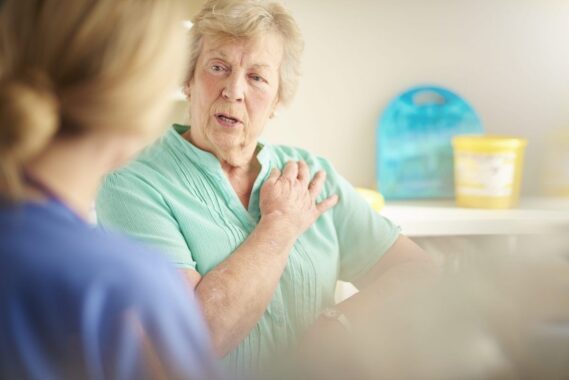ICSs asked to treat heart failure patients on virtual wards

ICSs have been asked by NHS England to expand their use of virtual wards to include patients with heart failure (HF).
Earlier this year, NHS England set out plans for 10,000 ‘virtual ward’ beds that will require support from GPs in a move that the BMA warned would pile more pressure on primary care.
In new clinical guidance published this week, the commissioner asked for thousands of patients with HF to be treated on virtual wards, as these are ‘shown to reduce recovery times, as well as easing pressure on hospital beds’.
HF specialists, including GPs with a specialist interest in HF, should discuss with the patient whether a virtual ward admission is suitable for them, the guidance said.
It added that healthcare systems that have yet to expand virtual ward capacity for people with HF should consider virtual wards ‘on a whole ICB footprint basis’ or in partnership with other ICBs to improve integration of specialist input for HF and other complex co-morbidities, patient care and hospital flow, and support earlier discharge where appropriate
NHS England said that virtual ward care can improve a person’s quality of life at home, with care ‘provided when they need it without having to leave their home’ and that patients can remain active at home and maintain independence, with support from their families and carers.
The guidance added: ‘It reduces the risks of concomitant infection and deconditioning during hospital admission, allows earlier hospital discharge and avoids readmission, while maintaining access to timely and responsive HF specialist care and guidance.
‘ICBs should work with cardiac clinical networks to understand their HF population needs, workforce skills and competencies, and existing service provision to deliver virtual ward care for their HF population and identify opportunities for system-wide efficiencies to improve the quality of patient care.’
NHS England national medical director Professor Sir Stephen Powis said: ‘More than 240,000 patients have already benefitted from virtual wards, and now we are growing this service to patients with heart failure.
‘This is a positive development in how the NHS can treat patients, and testament to the hard work of our staff after hitting our target of 10,000 virtual ward beds last month.
“The expansion has been implemented at a key time just before winter, when there will be a lot more pressure on our hospitals and will free up beds for those who need them the most.”
Health secretary Steve Barclay said: ‘We have already rolled out 10,000 hospital-at-home places which have benefitted thousands of patients across the country, and the expansion of these state of the art beds will allow people to get the specialist care they need from the comfort of familiar surroundings.
‘Patients suffering from heart failure will now be able to recover in the comfort of their own homes with the remote support of clinical staff.
‘This approach will help speed up recovery times for patients and cut down on unnecessary trips to hospital, easing pressure on the NHS this winter.’
Earlier this month, NICE has recommended empagliflozin as a treatment option for some patients with chronic heart failure.
Visit Pulse Reference for details on 140 symptoms, including easily searchable symptoms and categories, offering you a free platform to check symptoms and receive potential diagnoses during consultations.
Related Articles
READERS' COMMENTS [2]
Please note, only GPs are permitted to add comments to articles










Heart failure is associated with a substantial death rate which increases as the severity worsens. The patients considered, by cardiologists, to be suitable for virtual wards are likely to be older patients with severely reduced ejection fractions who are less likely to benefit from intensive inpatient therapy. This group has the highest mortality rate. Distraught children are unlikely to believe that I gave their dead mother/father the best possible treatment unless I make regular home visits in addition to virtual monitoring. How often will I have to visit to convince these bereaved children not to report me to the GMC for negligence? Even if I visit often enough to convince 90% of their relatives that did my best, I can expect to be attending the GMC at least once a year. Do you think I will be supported at my GMC hearing by the cardiologist who decided that the patient did not need hospital admission? Will the GMC make a reasonable allowance for the clinical circumstances?
The standard Cardiology response to the Coroner’s Inquest ends as follows.
“If the only the GP had contacted us we would have admitted the patient immediately”.
GP Performers List referral straight to the GMC, without passing Go.